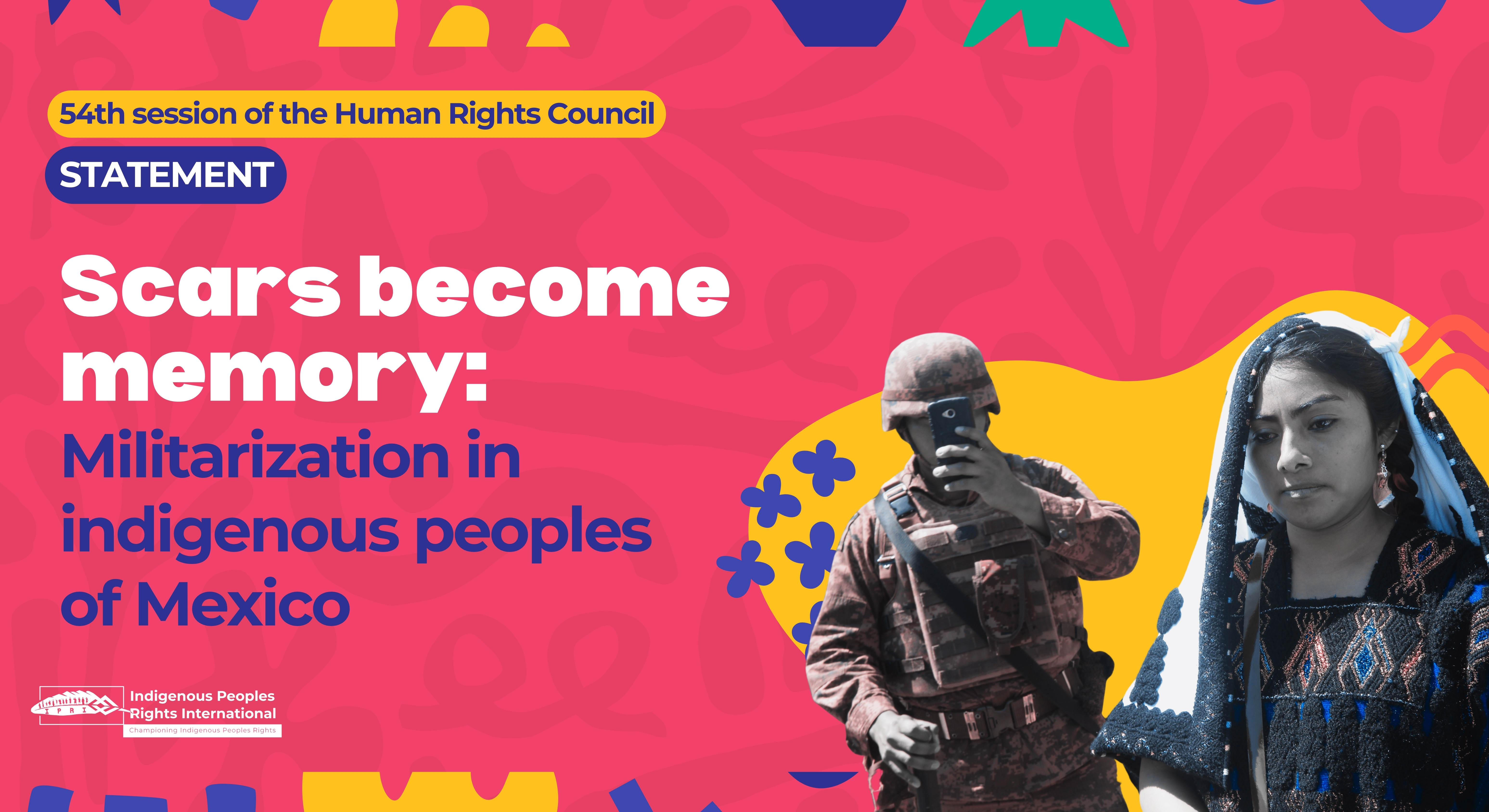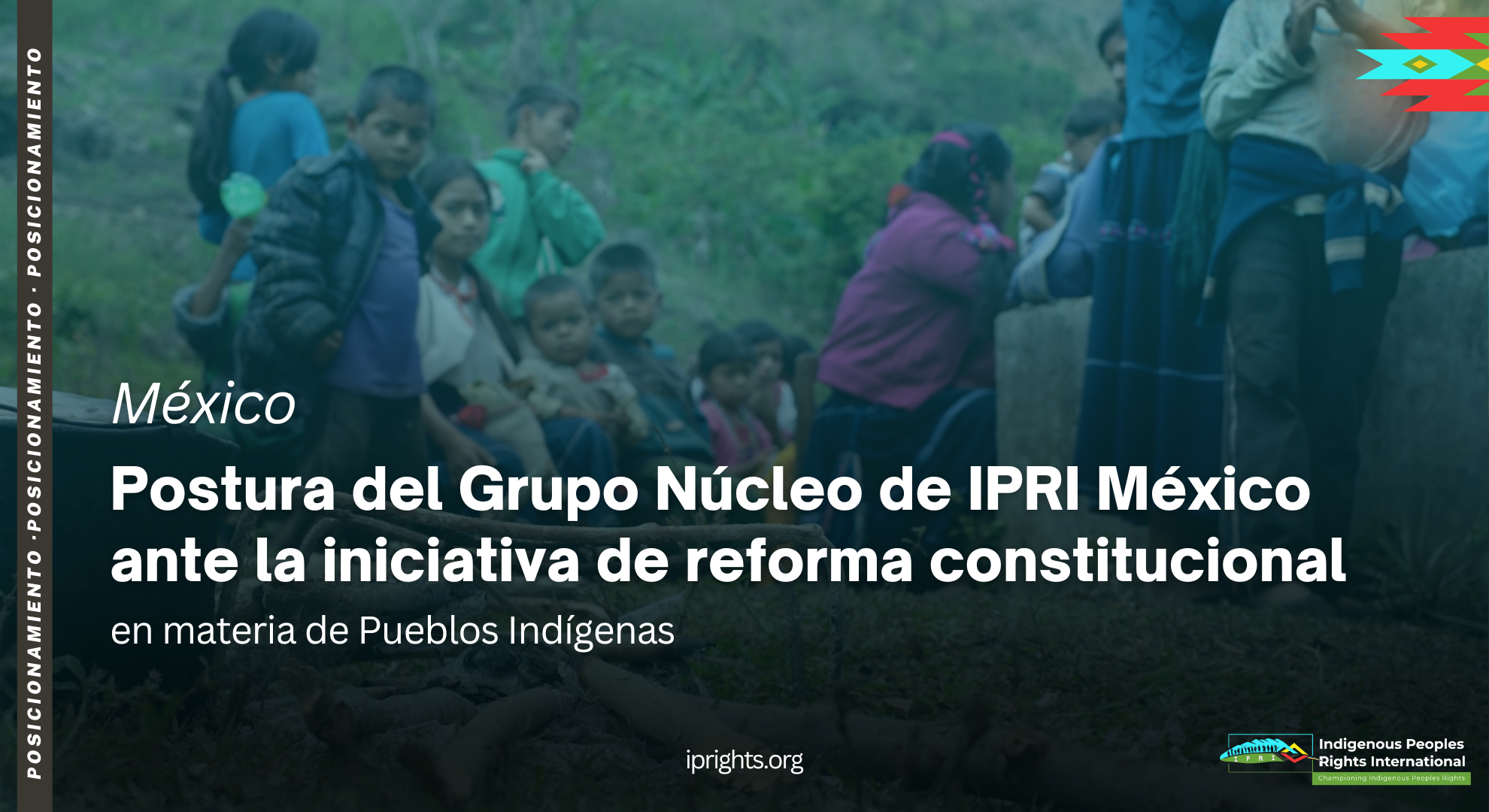Scars become memory. Militarization in indigenous peoples of Mexico
DECLARATION BY IPRI MEXICO
It is important for us the Indigenous Peoples of Mexico to be known that we are going through a difficult situation of violence and impunity that, as time goes by, becomes more pronounced and turns into a spiral of hopelessness. In the face of this phenomenon, the militarization of public security is presented as a necessary evil, which has provoked debates in public opinion. We, the organizations that prepared this statement, consider it important to prepare a report as an input to this debate.
The phenomenon of militarization in Mexico is a historical constant with different stages and particularities that obey different political and economic interests according to the time. This process is an open wound.
It is necessary to account for some atrocious events, such as the forced disappearance of Víctor Yodo at the hands of the military in 1978; the testimonies in Chiapas that account for the intervention of high-ranking army commanders to arm and train paramilitary groups in the 1990s, responsible for forced disappearances and homicides against indigenous communities in the northern zone of Chiapas; as well as the extrajudicial execution of 12-year-old Hidilberto Reyes García while the armed forces were implementing an operation to arrest the commander of the Ostula Community Police in 2015. All of these cases remain in absolute impunity.
This scenario is the starting point for the forms of militarization that indigenous peoples continue to experience today. Reflecting on the impacts over time of these events allows us to understand what the peoples are referring to when they say that these are open wounds, wounds that deepen and become antecedents for new violations of the collective rights of indigenous peoples. Faced with this situation, today we would like to ask for international solidarity to invite Mexico to develop proposals that go in the following direction:
1. To reform the Constitution to recognize indigenous peoples as subjects of public law, in order to guarantee their collective rights to self-determination, autonomy, and self-government, to maintain their institutions and systems of justice, security, and their rights over their lands, territories, and natural resources, among others; in line with international human rights law, particularly the United Nations Declaration on the Rights of Indigenous Peoples, as well as the harmonization of state and municipal laws.2. In congruence with the United Nations Declaration on the Rights of Indigenous Peoples, the Mexican State, through the Presidency of the Republic, should order SEDENA, SEMAR, and GN to demilitarize indigenous territories.
3. The Federal Government, in coordination with state and municipal governments and with the broad participation of civil society, especially indigenous peoples, should design a comprehensive non-militarized security strategy to contain and address the operation of organized crime groups and armed groups. In addition to promoting spaces for reflection, dialogue, and training on peace building in indigenous communities with an emphasis on citizen security, human rights and within a framework of cultural relevance, respecting the collective rights of Indigenous Peoples.
4. In indigenous communities where there is a permanent or transitory presence of the Armed Forces, the pertinent processes of prior, free, and informed consultation in which the right to consent of the indigenous communities to decide on their territories is prioritized should be developed. In such a way that in those communities where there is a public demonstration of disagreement with the military presence, the removal of these elements from the indigenous communities is ordered.
5. In those indigenous communities where military presence is requested, the authorities of the three levels of government must respect the right to autonomy of indigenous peoples, as well as the channels, protocols and procedures defined by each community, respecting their legal institutions and traditional laws.
6. The Mexican State should guarantee access to justice by making known the truth of the facts such as massacres, forced disappearances and other serious human rights violations in which the participation of elements of the Armed Forces (Secretary of National Defense, Secretary of the Navy and National Guard) has been pointed out. The justice system should criminally prosecute those who are being held responsible.
Finally, 9 years after the disappearance of 43 students in Mexico, from here we demand justice and punishment to those responsible, especially to the Armed Forces.
Scars become memory





